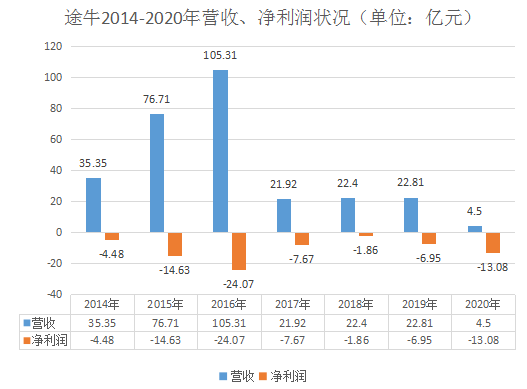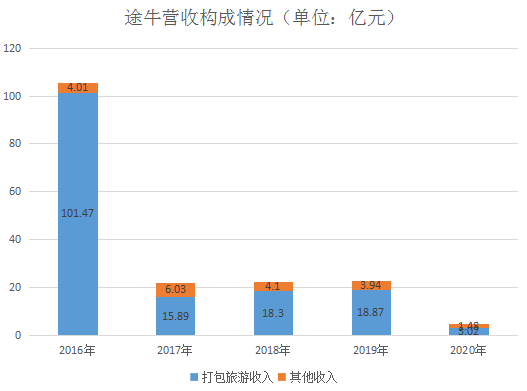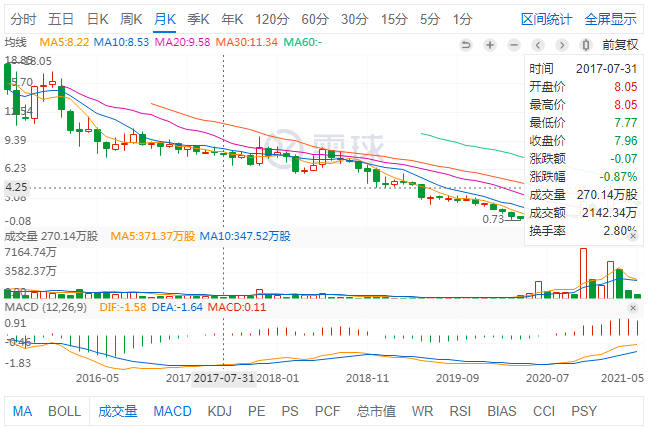According to industry insiders, Tuniu has a single product structure, and is embarking on a road of “burning money” for expansion. At present, consumers have new demand for tourism consumption. If they cannot produce attractive products, or there is not much time for Tuniu Up.
Editor’s note: This article is from the WeChat public account “Blue Whale TMT” (ID: ilanjingtmt), author: Qi Zhiying.
Recently, Tuniu was named by the Ministry of Industry and Information Technology for allegedly collecting personal information in violation of regulations. According to information, it is not the first time that Tuniu was named for allegedly collecting personal information in violation of regulations. According to industry insiders, Tuniu has a single product structure, and is embarking on a road of “burning money” for expansion. At present, consumers have new demand for tourism consumption. If they cannot produce attractive products, or there is not much time for Tuniu Up.
Recently, Tuniu was named by the Ministry of Industry and Information Technology for allegedly collecting personal information in violation of regulations. Subsequently, Tuniu responded to the Blue Whale TMT reporter and stated that it was rectifying and repairing the corresponding problems. But as of now, Tuniu App can still be downloaded in the App Store.
It is understood that Tuniu’s alleged violation of collecting personal information is not the first time it has been named. In this regard, Zhao Hu, a partner of Beijing Zhongwen Law Firm, said that if the unit involved is required to make rectification but not rectified within the specified time, the market supervision and management department can investigate and deal with it, request a deadline for correction, fines, or even revoke it. business license.
In recent years, Tuniu’s life has not been easy. At first, Tuniu went public with the first Chinese company focusing on online leisure travel in the U.S. stock market. However, Tuniu’s performance has been at a loss since its listing, and executives frequently After leaving, the stock price fell again and again, and the two shareholders also changed hands last year.
According to industry insiders, Tuniu’s product structure is single, and in order to expand and embark on the road of “burning money”, consumers currently have new demand for tourism consumption. time is limited.
Tuniu has been named many times due to information security issues, and it can still be downloaded after being removed from the shelves
According to a report from the Ministry of Industry and Information Technology, in recent inspections, five companies including Tianya Community, Damai, Tuniu Travel, VIP Training, and Maimai have repeatedly encountered similar problems in different versions of the APP, and their violations will be suspended in accordance with the law and directly Delisting processing.
It is understood that Tuniu Travel has the problem of illegal collection of personal information, forcing users to use the targeted push function, and the problem of forced, frequent, and excessive requests for permissions by the App.
For thisIn the incident, Tuniu Tourism responded to the Blue Whale TMT reporter, saying that it paid attention to the latest information reported by the Information and Communication Administration of the Ministry of Industry and Information Technology, expressed its sincere apology for the poor user experience caused by related issues, and attached great importance to the related issues involved in the notification. , Is rectifying and repairing the corresponding problems.
The Ministry of Industry and Information Technology stated in the notification that in accordance with the “Cyber Security Law”, the “Provisions on the Protection of Personal Information of Telecommunications and Internet Users” (Ministry of Industry and Information Technology Order No. 24), and the “Interim Provisions on the Presetting and Distribution of Mobile Smart Terminal Application Software” Xinguan [2016] No. 407) and other legal and regulatory documents require the organization to remove Tuniu and other APPs.
However, as of now, the Tuniu App can still be downloaded in the App Store.
Zhao Hu said that both the Civil Code and the Consumer Rights Protection Law have relevant legal provisions to protect the personal information of natural persons, and operators are not allowed to collect, use and process such personal information without authorization.
Article 29 of the Law on the Protection of Consumer Rights and Interests stipulates that when collecting and using consumer personal information, operators shall follow the principles of lawfulness, fairness, and necessity, and clearly state the purpose, method, and scope of the collection and use of information, and With the consent of the consumer.
According to the data, “Tuniu” has been “named” more than once. In April 2020, the National Computer Virus Emergency Response Center found through monitoring that Tuniu Travel (version 10.26.0) did not expressly apply for all privacy to users Permissions.
In December of the same year, the National Computer Virus Emergency Response Center discovered through Internet monitoring in the “Net Network 2020” special operation that a number of travel mobile applications had privacy violations and were suspected of violating the relevant provisions of the Cyber Security Law. Collect personal privacy information beyond the scope. In this illegal mobile application, the purpose, method, and scope of the collection and use of personal information are not listed one by one. The suspected privacy violations include Tuniu Travel (version 10.36.0).
Tuniu “burned money” for 7 years of expansion and lost 7 billion yuan
Tuniu Travel.com was founded in October 2006 and landed on Nasdaq in the United States in May 2014. After listing, Tuniu signed a contract with Lin Zhiying and Jay Chou as the endorsements, spending a lot of money on advertising and acquiring users. At that time, platforms such as Tuniu and Ctrip were classified as the “first echelon” of OTA, and they were in the limelight for a while.
However, at the beginning of its listing, Tuniu embarked on a road of rapid expansion at the cost of “burning money.” At the beginning of the listing, Tuniu had only 5 offline regional service centers. Only one year later, this number had become 85. This is also obvious in terms of revenue. In 2014 and 2015, its revenue growth was 81.31% and 117.01%, respectively, which was in a state of rapid growth.
However, this “burning money” strategy has received bad feedback in terms of net profit. Since its listing, Tuniu has been at a loss. In the 7 years from 2014 to 2020, the return of TuniuThe parent net profit totaled 7 billion yuan in losses. Except for a profit of 31.02 million yuan in the third quarter of 2018, the remaining quarters showed losses.
Tuniu explained the reasons for the loss in its 20-F document. It stated that the historical net loss was partly attributable to rapidly growing business operating expenses, including regional expansion, brand and advertising campaigns, mobile-related plans, Expenses related to personnel expenditures. In addition, the epidemic caused a temporary interruption of its business in 2020, resulting in a net loss, including a large amount of impairment charges.
At the same time, Tuniu admitted frankly that it expects to continue to incur expenses to further develop its business, which will affect its profitability and cash flow from operating activities in the future.
Tuniu slowed down the pace of market expansion in 2017, and its revenue began to shrink, falling by 79.18% from 10.53 billion yuan in 2016 to 2.192 billion yuan. After 2017, its revenue has also been growing slowly, dropping to 450 million yuan in 2020.
In this regard, Chen Liteng, a life service e-commerce analyst at the E-commerce Research Center of the Net Economics, said that Tuniu’s product structure is simplistic. The expansion of the offline market has also led to an increase in its operating costs, further compressing the platform’s profit margins.
Industry insiders said that the reason for Tuniu’s performance loss is related to its business scope. Tuniu’s main products include group tours, self-guided tours, and company tour customized services. The main business includes packaged tours and other businesses.
In this regard, Chen Liteng analyzed that Tuniu’s single business structure has led to its weak anti-risk ability, and its business has shrunk significantly under the influence of the epidemic; in addition, the trend of personalized and customized tourism in the tourism industry is obvious, and packaged tourism is becoming more and more. Can not meet user needs.
The stock price has shrunk by more than 70%, and executives change frequently
While Tuniu suffered huge losses, its stock price has also shown a plummeting state during the 7 years of listing. April to May 2020, Tuniu faced a delisting crisis. From April 6, 2020 to May 27, 2020, Tuniu’s closing price was not higher than 1 U.S. dollar. On May 28, 2020, the closing price returned to more than 1 U.S. dollar, but then, Tuniu’s stock price has repeatedly fallen below US$1.
As of the close of trading on May 22, Tuniu’s stock price was US$2.4 per share, a drop of more than 70% compared with the listed issue price of US$9.
The senior management team of Tuniu is as unstable as its stock price, and its core members frequently leave. In June 2016, the core member of Tuniu’s founding team and CMO Chen Fuwei resigned; in November 2017, Tuniu co-founder Yan Haifeng and CFO Yang Jiahong left Tuniu.
The CTO of Tuniu has changed many times. In September 2013, Tuniu.com announced that the former Alibaba executive Tang Zhengrong had officially joined and served as CTO. Three years later, Tuniu announced that Tang Zhengrong had resigned due to personal reasons. , Hired Qian Haichuan as the senior vice president and CTO; in January 2018, Tuniu’s CTO was changed to Chen Shihong again; two years later, Tuniu’s CTO Chen Shihong was transferred to the company’s vice president in charge of Tuniu hotel management.
In addition, in April 2020, Tuniu CFO Xin Yi announced that he would officially resign on May 31. Since then, Tuniu has not announced the CTO and CFO candidates. Up to now, except Tuniu founder Yu Dunde, shareholders such as Tan Yongquan, Wang Tong, Wenxin, Wang Jiping, Yan Haifeng, Wang Haifeng have all withdrawn from Nanjing Tuniu Technology Co., Ltd.
A number of industry insiders said that the loss of executives reflects that Tuniu’s internal governance and operations have encountered many problems, which will have a greater negative impact on the company’s decision-making and layout. Chen Liteng said that his own business has not improved, and frequent executive changes can be said to have worsened the situation.
In terms of company shareholding, Tuniu has experienced a change of ownership by the second shareholder. As of April 2020, HNA Group is Tuniu’s largest shareholder with a shareholding ratio of approximately 24.6%; JD.com is Tuniu’s second largest shareholder, holding 21% of the shares. A month later, Caesars Group announced that it has reached a cooperation intention with JD. Jingdong is willing to transfer all Tuniu shares held by its subsidiaries to Caesars Group, and the three parties will carry out in-depth cooperation.
In November of the same year, JD.com and Caesars Group completed the transaction and cleared out Tuniu’s equity. Caesars Group became Tuniu’s second largest shareholder with a shareholding ratio of 21.1%. Tuniu’s largest shareholder is still HNA Group, with a shareholding ratio of 27.1%.
A number of industry insiders said that shareholders who have invested in Tuniu have suffered losses in recent years, and the OTA industry has gathered to the topThe trend is that if Tuniu wants to get out of trouble, it needs to come up with products that meet the needs of consumers, but I don’t know how much time is left for Tuniu.



